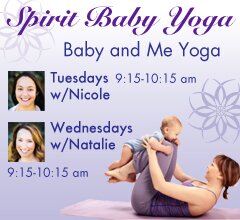Take A Mindful Breath This Holiday Season
By Kate K. Smith

How many times have we made up our minds that this holiday season “we are going to be good?”
We begin to plot and plan and make up a thousand different scenarios in our minds about what we will and won’t allow ourselves to eat, only to find ourselves abandoning our best plans in the blink of an eye. We find ourselves the “day after” suffering from a dull headache, indigestion, guilt, shame, and what I like to call the “Holiday Food Hangover.”
The holidays can be a difficult time for many of us. We are continually bombarded with multi-sensory overload from Halloween to New Year’s, featuring visual stimulants that beg us to pay attention, consume, and feel good, while we overload our senses to the point where we are typically numb from all of it.
There is no doubt that the holiday season brings with it a host of predictable and unpredictable stresses. We have no control over that. In reality, there is very little we can control. In truth, there are only two things we can control; our breath, and what we put in our mouths. Think about it. You can hold your breath, or you can breathe with intention and regularity, with mindfulness. It’s up to you. No one decides what you put in your mouth or what you don’t. It’s up to you. You get to choose. The rest, well, it’s out of your control. When the holidays are upon us, it is easy to get swept away in the swirl of the tidal wave of parties, dinners, family, friends and commitments. Often there is little time for self. We can easily loose sight of what is really important, that it is the season of love.
The heart and soul of the holiday season is really about the love we can share and offer to others at this time of year. Love is the antidote for suffering and the one emotion we can give ourselves and others selflessly while nurturing our tender hearts and supporting ourselves in making choices that are in our highest good. Choices that mirror to ourselves that we deserve to feel good about ourselves.
The process that ignites self-love begins with befriending yourself. If we are looking to fill ourselves up from the outside in, we will never be full. The truth is we are full. We already have what we need inside of ourselves to be happy, to be fully present. We are already whole. What we need is that affirmation to ourselves in a direct way. A direct, accessible clear communication with that truth, everyday. The spiritual practices are our connect.
Spiritual practices are the keys that unlock the door to the path that lead us inward, and allow us, teach us, how to get in touch with our authentic selves, the self that is “true” and knows that even with our wrinkles, bumps, bruises and blemishes, we are already whole and good. Spiritual practices teach us how to befriend ourselves. Spiritual practices get us in touch with ourselves, and with source, with a higher power, with God, with nature.
We can connect with a deeply spiritual part of self, our intuitive selves, that only wants what is in our highest good, through the breath. By simply paying attention to the breath, we can interrupt patterns that we have spent so much time constructing and holding on to for dear life. One breath at a time. Gurmukh, a Kundalini yoga master, says, “Breathe shallow, live shallow. Breathe deeply, live deeply.”
One of the most commonly discussed breath practices in our culture today is mindful awareness. Mindfulness is the energy of AWARENESS.
Mindfulness is referred to as the medicine that “cures the disease of desire.” (The Zen of Eating, Ancient Answers to Modern Weight Problems, Ronna Kabatznick, Ph.D.) Mindfulness is the ability to stay in the present moment with clarity and calm attention. It can teach us to be totally present.
Mindless eating is really a result of being disconnected with self. Mindlessness is an easy way to numb out. It is the way “out” of self that inevitably leads to over eating, even bingeing, or, abstaining and restricting. The practice of mindful awareness over time, gives us time, and time gives us choices, choices skillfully and lovingly made, give us freedom. Freedom from the bondage we can create when the tyranny of attachment to food holds us hostage.
We can learn to detach from overwhelming feelings without being swept away by them, or without feeling like we are drowning in them. Mindfulness gives us time to react, or time to respond, time to appreciate, rather than run, and the time to be with what comes up, and to learn how to manage our feelings, rather than stuff away, what is uncomfortable and seemingly unmanageable. We are such creatures of habit that we don’t even realize that our habits have actually become self sabotaging behaviors. We can interrupt old patterns by paying attention to our breath until it becomes the new habit we embrace.
So, how do we practice mindful awareness? We make time to cultivate the appreciation of stillness from with in to facilitate the deep appreciation of what is, without judgment. We make time to pay attention to our breath. That attention is the foundation.
 A couple of examples: Practice silence. Cook in silence, one designated day a week. I am Jewish. When I prepare Shabbat dinner on Friday afternoon, I practice silence. No television, no radio, no music, Ipod or cell phone! Only the rhythm of my breath, and the smells, sights, and sounds of cooking with love.
A couple of examples: Practice silence. Cook in silence, one designated day a week. I am Jewish. When I prepare Shabbat dinner on Friday afternoon, I practice silence. No television, no radio, no music, Ipod or cell phone! Only the rhythm of my breath, and the smells, sights, and sounds of cooking with love.
Eat a meal in silence one day a week. Pay attention to nature. Sit in nature. Take a walk around your neighborhood and make a point of finding six things you’ve never seen before.
You can practice mindful awareness by simply, stopping to look, listen… taste, touch, and smell with all of your senses. Breathe in deeply, and breathe out.
Meditate. Meditation is a spiritual practice that puts us in touch with the breath. Start slowly. Take ten minutes to sit comfortably and quietly. Close your eyes and pay attention to your breath. Watch the breath. Thoughts will come up. No worry. It is the nature of the conscious mind to think. Just breathe, and watch with out judgment. “Through mediation we shift our awareness from the outer activity our minds are continually wrapped around to an inner awareness. We can cultivate and inner stillness where we can listen to what the heart truly desires. We cultivate an internal state of peace and happiness that is independent of people, situations, and circumstances.” (David Simon, MD, Chopra Center) Mediation and mindful awareness leads to “breath consciousness.” Breath consciousness actually lowers blood pressure, supports the immune system, lowers heart rate, reduces anxiety, and can interrupt old thoughts and behaviors.
Practice yoga! We are blessed in our community with an abundance of yoga studios. Yoga is a moving mediation. Breath linked with movement. Yoga is a spiritual practice as ancient and as vibrant as time itself. The practice of yoga gives us the opportunity to step on to our mats and see in to a mirror that reflects to us what we may, or may not want to see. It teaches us how to see ourselves in a way that is vulnerable, kind and forgiving. Through the practice of yoga we can see that we do not have to be perfect. We are perfectly imperfect. We are capable of change. Our practice reflects to us that we ARE ALWAYS CHANGING and change is inevitable. To effectuate change, we need only to begin to accept ourselves, and trust the process.
Prayer is also a spiritual practice that I personally embrace more than ever during the holiday season, and every morning. Prayer builds faith and faith builds trust, and trust is the emollient that can shift the heart from fear to love.
Making time to incorporate these spiritual practices on a daily basis in your life can change your life. Devoting yourself to cultivating these practices with an open heart might even safe your life.
So, before you sit down at your holiday table this season, breathe. Breathe in, breathe out. Remember to love yourself first. Then eat, drink, share and love.
 Kate K. SMith MA, LLP is a psychotherapist at the Birmingham Maple Clinic. You can reach her at 248-282-2336, and www.birminghammaple.com, working with adolescents and adults, individually and in groups. She holds a Master’s Degree in clinical and humanistic psychology from the Michigan School of Professional Psychology, and is certified in Clinical Hypnotherapy by the American Society of Clinical Hypnosis. In her practice she specializes in the treatment of anxiety and depression, trauma and trauma related issues, chemical dependency, along with a sub-specialty in the treatment of eating disorders.
Kate K. SMith MA, LLP is a psychotherapist at the Birmingham Maple Clinic. You can reach her at 248-282-2336, and www.birminghammaple.com, working with adolescents and adults, individually and in groups. She holds a Master’s Degree in clinical and humanistic psychology from the Michigan School of Professional Psychology, and is certified in Clinical Hypnotherapy by the American Society of Clinical Hypnosis. In her practice she specializes in the treatment of anxiety and depression, trauma and trauma related issues, chemical dependency, along with a sub-specialty in the treatment of eating disorders.
Kate has studied, and practices meditation, and incorporates a blend of hypnosis, guided imagery and mindfulness meditation, in her work with her clients. She completed her RYT certification with Katherine Austin in 2008 to further her devotion and dedication to her yoga practice,
 and integrate yoga and yogic philosophy in her work with clients. She has worked with Katherine Austin at Karma Yoga, to develop and facilitate a unique workshop for women: Women, Food and Yoga that focus’s on the effect yoga has on creating a healthy relationship with your body and food.
and integrate yoga and yogic philosophy in her work with clients. She has worked with Katherine Austin at Karma Yoga, to develop and facilitate a unique workshop for women: Women, Food and Yoga that focus’s on the effect yoga has on creating a healthy relationship with your body and food.
Kate also teaches an Introduction to Modern Ayurvedic Cooking class. A culinary graduate of the New York Restaurant School, she is a chef and the author of a spirit
ual cookbook, Recipes for the Journey, A Cookbook and Guide to Good Health in Recovery. This blog first appeared at ASKinYourFace.com on November 13, 2013. It is reprinted with permission.




